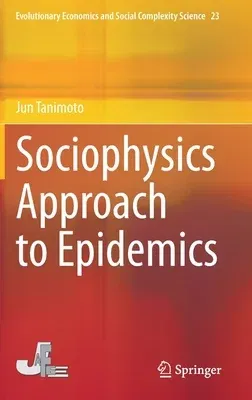This book presents the fundamentals of evolutionary game theory and
applies them to the analysis of epidemics, which is of paramount
importance in the aftermath of the worldwide COVID-19 pandemic. The
primary objective of this monograph is to deliver a powerful tool to
model and analyze the spread of an infectious disease during a pandemic
as well as the human decision dynamics. The book employs a variant of
the "vaccination game," in which a mathematical epidemiological model
dovetails with evolutionary game theory. From a social physics
standpoint, this book introduces an extended concept of the vaccination
game starting from the fundamental issues and touching on the newest
practical applications.
The book first outlines the fundamental basis of evolutionary game
theory, in which a two-player and two-strategy game, the so-called 2 × 2
game, and a multi-player game are concisely introduced, and the
important issue of how social dilemmas are quantified is highlighted.
Subsequently, the book discusses various recent applications of the
extended concept of the vaccination game so as to quantitatively
evaluate provisions other than vaccination, including practical
intermediate protective measures such as mask-wearing, efficiency of
quarantine compared with that of isolation policies for suppressing
epidemics, efficiency of preemptive versus late vaccination, and optimal
subsidy policies for vaccination.

